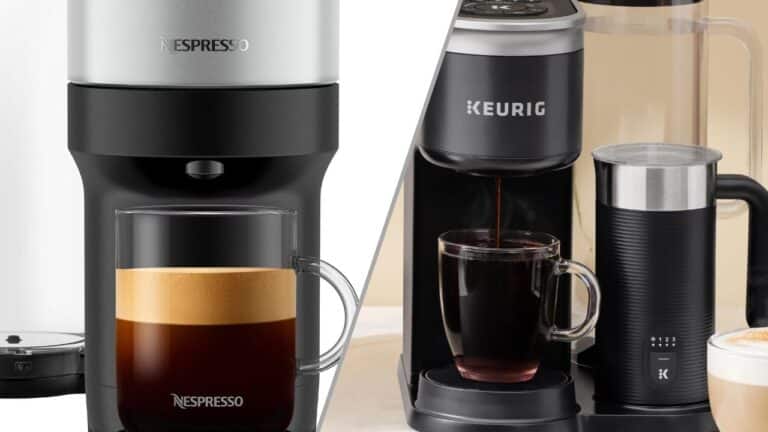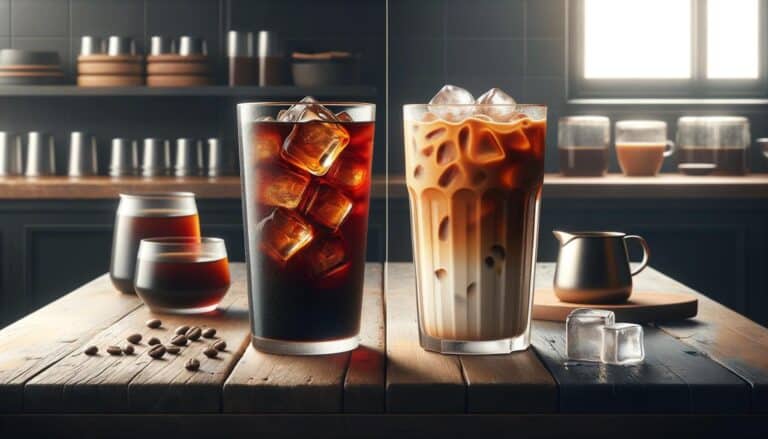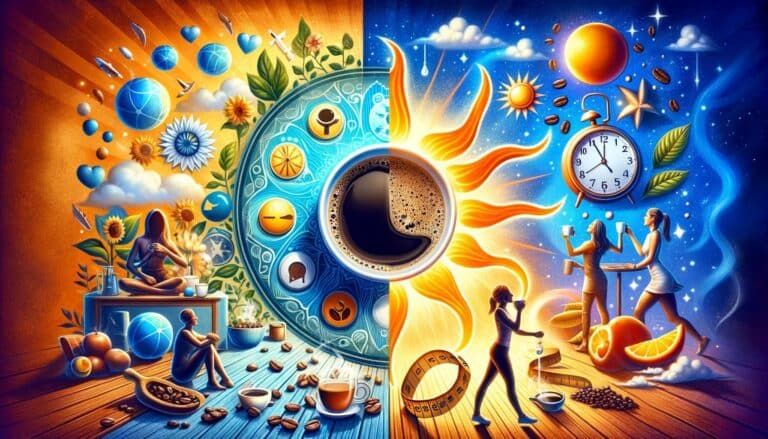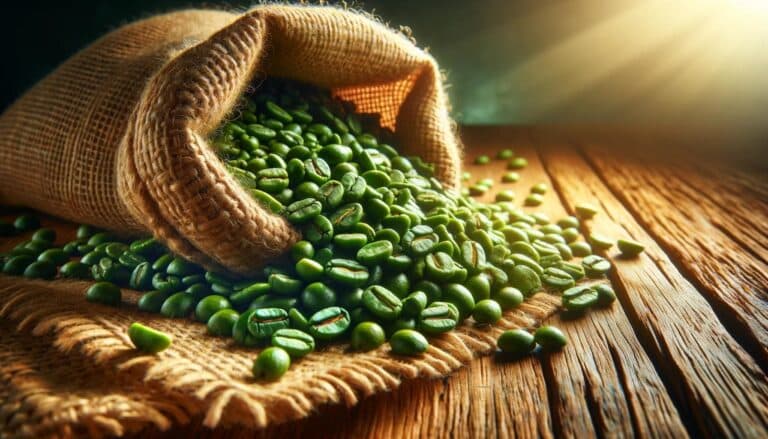The amount of caffeine in a typical cup of coffee is approximately 95 mg. This amount, though, varies among various coffee beverages and can be anywhere between essentially nothing and over 500 mg.
Coffee, celebrated across the globe for its energizing magic, has woven itself into the tapestry of human history and culture for ages. It’s more than just the beloved wake-up call for countless people every morning – it’s also a social tradition, a shared ritual, and a power-packed fuel. What gives coffee its ‘oomph’? That would be caffeine, a natural stimulant that fills us with a feeling of alertness with every sip.
Why is it important to understand the caffeine in your coffee? There are a few reasons. For starters, it helps coffee lovers keep tabs on their caffeine consumption, ensuring it stays within the safe zone. This is particularly crucial for those with caffeine sensitivity or specific health conditions. Plus, it enables coffee drinkers to make smart decisions about the kind and quantity of coffee they choose. And it raises the awareness of how caffeine can affect us, from sleep disturbances and faster heart rates to the possibility of caffeine addiction if we overdo it. So, let’s delve into the specifics of how much caffeine your coffee might hold and the factors that influence it.
Understanding Caffeine
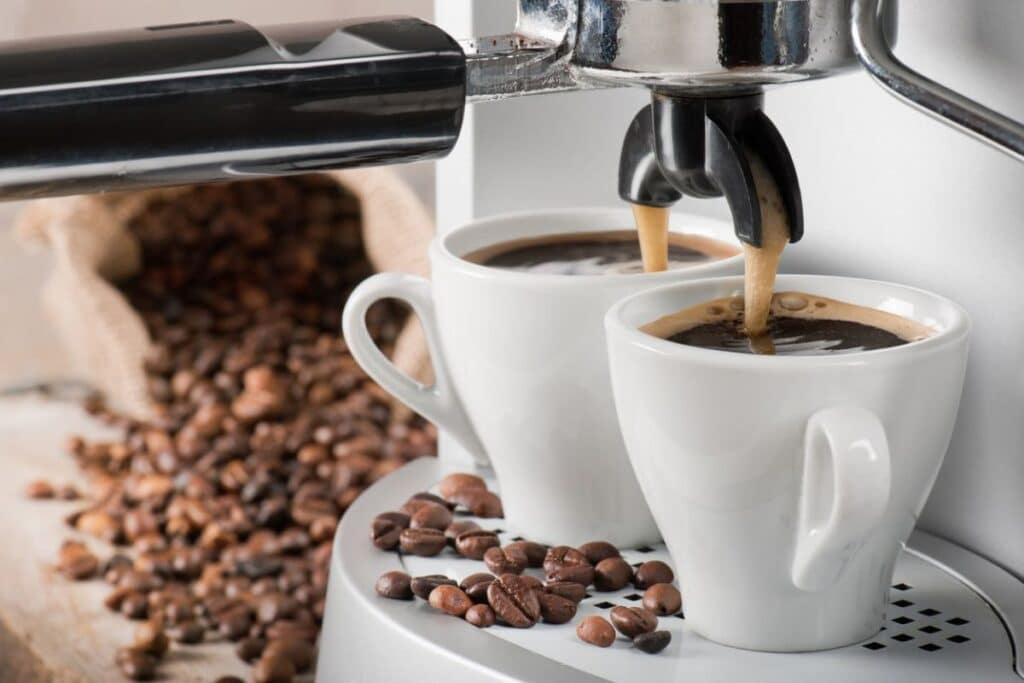
Caffeine is a natural stimulant most commonly found in tea, coffee, and cacao plants. It works by stimulating the brain and central nervous system, helping you stay alert and preventing the onset of fatigue.
When consumed, caffeine primarily impacts the central nervous system, leading to several physiological effects. Most notably, it blocks adenosine receptors in the brain. Adenosine is a neurotransmitter that promotes sleep and relaxation. By blocking it, caffeine can promote alertness and reduce feelings of tiredness. Other effects of caffeine can include increased heart rate, heightened mood, and improved cognitive function and physical performance. However, excessive consumption can lead to negative effects like insomnia, jitteriness, increased heart rate, stomach issues, and even anxiety or dependence.
Coffee might be a star player when it comes to caffeine, but it’s certainly not alone on the field. Other significant sources include tea leaves, cacao beans, certain energy drinks, some types of soda, and even certain medications or dietary supplements. It’s worth noting that the amount of caffeine in these sources can vary significantly. For example, an average 8-ounce cup of coffee boasts about 95 milligrams of caffeine, whereas the same serving size of black tea has roughly half that and cola drinks usually have less than a third.
What Factors Influence Caffeine Content in Coffee

The Type of Coffee Bean
There are several species of coffee plants, but the two most commonly consumed worldwide are Coffea arabica (Arabica) and Coffea canephora (Robusta). Arabica coffee beans are generally considered higher quality and have a smoother, more delicate flavor. Robusta beans, on the other hand, are hardier, have a stronger, more bitter flavor, and, importantly, contain about twice as much caffeine as Arabica beans.
The Roast of the Coffee Bean
It’s a common myth that dark roast coffee is higher in caffeine, but the reality is somewhat counterintuitive. During the roasting process, coffee beans lose water and expand in size. Thus, a scoop of dark roast beans (which are roasted longer) has fewer beans than a scoop of light roast beans (which are roasted for a shorter time), simply because the beans are larger. If you measure your coffee by volume (like with a scoop), you’ll get more caffeine from a light roast. If you measure by weight, the caffeine content between light and dark roasts is almost identical.
The Brewing Method
The method used to brew coffee also significantly impacts the caffeine content. For example, espresso brewing involves forcing hot water through finely ground coffee under high pressure, which results in a more concentrated coffee drink with more caffeine per fluid ounce than regular drip or French press coffee. However, because servings of espresso are typically much smaller than servings of other types of coffee, a single serving of espresso may have less total caffeine than a serving of drip or French press coffee.
Serving Size and Concentration
The amount of coffee and water used in brewing will also affect the caffeine content. More coffee or less water will yield a stronger, more caffeinated cup, while less coffee or more water will produce a less concentrated, less caffeinated beverage. The serving size also plays a significant role: a larger serving of coffee will typically contain more caffeine, even if the coffee is not particularly strong.
Specifics of Caffeine in Different Types of Coffee
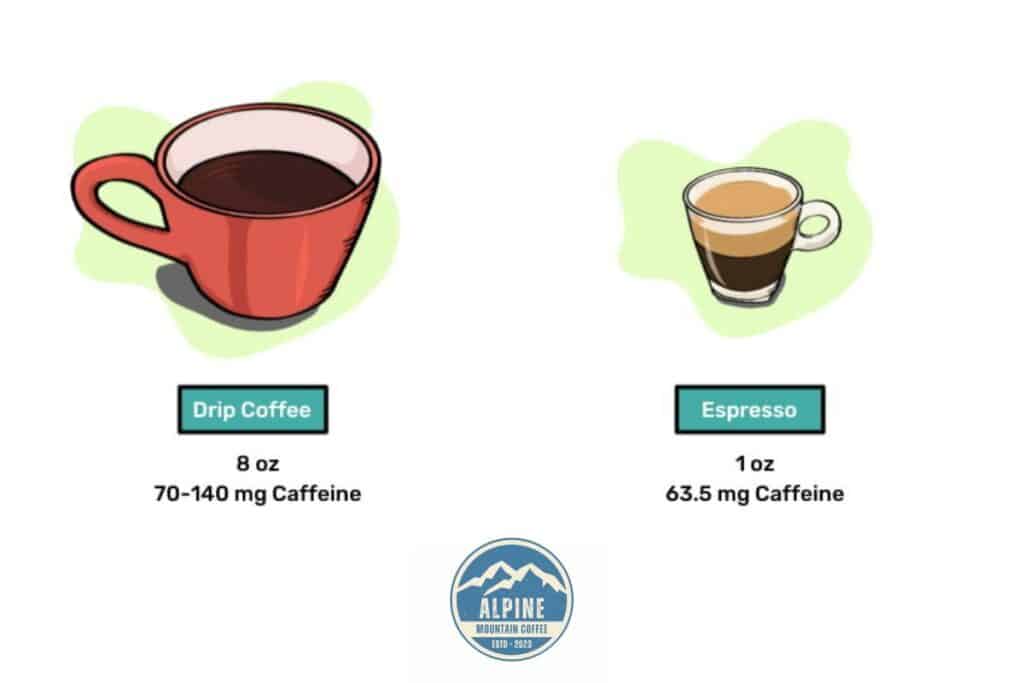
Espresso
Espresso is famous for its intense flavor and velvety texture. Its birth place in the heart of Italy. The caffeine shot in espresso can be a bit of a wild card, but generally a single shot (1 ounce) of espresso carries about 63.5 milligrams of caffeine. This number can dance around a bit, influenced by factors like the type and roast of the beans, the fineness of the grind, and the water pressure and temperature during extraction.
Brewed Coffee
Brewed coffee, also familiar as drip or filter coffee, is made by allowing hot water to work its magic on ground coffee beans, resulting in a delightful liquid that trickles into a carafe or pot. An 8-ounce cup of brewed coffee usually holds about 95 milligrams of caffeine, but this can swing between 70 to 140 milligrams. This is influenced by variables like the type and roast of the beans, the water to coffee ratio, and the specific brewing method used.
Instant Coffee
Instant coffee, derived from brewed coffee that’s been freeze-dried or spray-dried, typically contains less caffeine than regular coffee. Usually, an 8-ounce serving houses about 62 milligrams of caffeine. Still, this can change depending on how generous your scoop of instant coffee powder is.
Decaffeinated Coffee
Decaffeinated coffee goes through a special process to strip away most of the caffeine. Several methods exist, from using solvents to carbon dioxide, or the Swiss Water Process. Despite its name, decaf coffee isn’t completely caffeine-free. Typically, an 8-ounce cup of decaf carries about 2 to 12 milligrams of caffeine. This is a modest amount compared to regular coffee, but still notable for those sensitive to caffeine.
The Impact of Coffee and Caffeine on Health

Health Benefits of Moderate Caffeine Consumption
Research suggests that moderate caffeine consumption can have several health benefits. These can include:
- Increased alertness and cognitive function: Caffeine is a go-to for many seeking improved focus and memory, particularly when alertness is key.
- Physical performance: It can increase adrenaline levels, aiding physical performance by making fatty acids available in the bloodstream for energy use.
- Reduced risk of certain diseases: Some studies suggest a link between moderate coffee drinking and a reduced risk of diseases. These diseases may include Alzheimer’s, Parkinson’s, type 2 diabetes, and certain types of cancer.
Potential Risks and Drawbacks of High Caffeine Consumption
On the flip side, overdoing caffeine can bring about its share of risks:
- Sleep disruption: Caffeine consumption, especially later in the day, can meddle with sleep.
- Anxiety: High doses of caffeine can lead to jitteriness and nervousness. In severe cases, it can even cause panic attacks.
- Digestive issues: Some people find that caffeine can upset their stomachs or cause acid reflux.
- Heart health: Although evidence is mixed, there’s some suggestion that excessive caffeine can lead to increased heart rate and high blood pressure. Particularly in those with existing heart conditions or who are sensitive to caffeine.
- Bone health: There’s some evidence suggesting that high caffeine intake might interfere with calcium absorption, potentially affecting bone health.
Brief Discussion on Caffeine Addiction and Withdrawal
Caffeine is a mild stimulant and habitual use can lead to dependence. Suddenly ditching caffeine can trigger withdrawal symptoms like headaches, irritability, fatigue, and decreased alertness. However, this dependence is generally not severe and can be managed by reducing caffeine intake gradually rather than going cold turkey. It’s worth remembering that while caffeine is generally considered safe by food and health authorities, its effects can vary greatly from person to person.
Understanding Personal Caffeine Tolerance
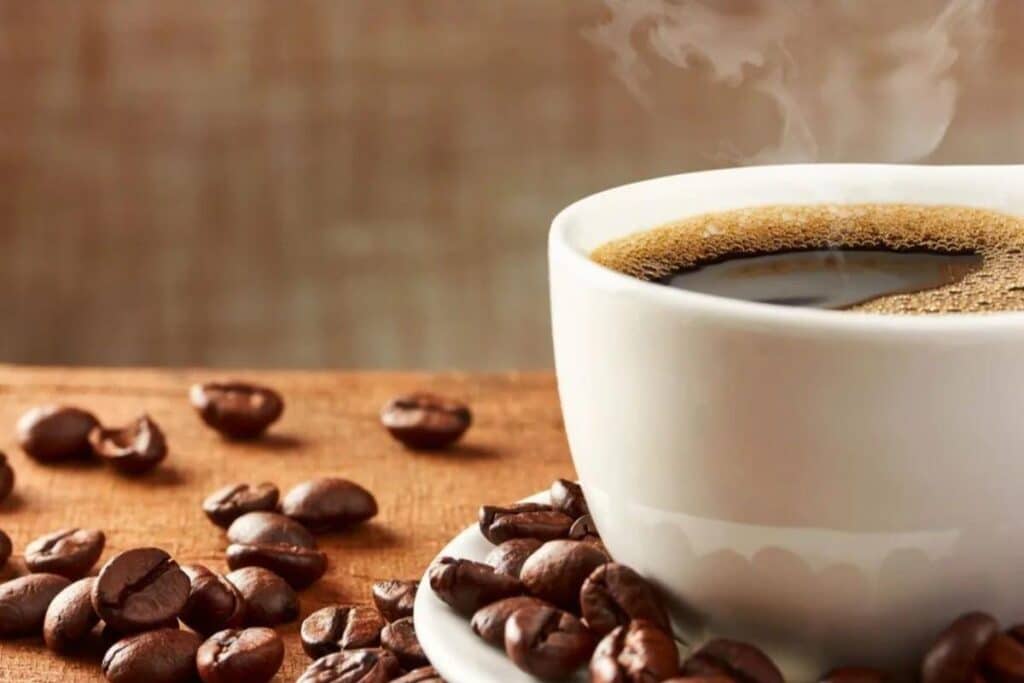
Factors that Affect Personal Caffeine Tolerance
Several factors can influence an individual’s tolerance to caffeine, including:
- Genetic Factors: Some people are genetically predisposed to metabolize caffeine faster or slower than others.
- Age: Younger people tend to metabolize caffeine faster than older adults.
- Body Mass: Larger individuals may tolerate more caffeine than smaller ones.
- Regular Consumption: Regular caffeine users can build up a tolerance over time, requiring higher amounts to achieve the same effects.
- Health Conditions: Certain conditions such as pregnancy, liver disease, heart disease, and mental health disorders can influence caffeine tolerance and its effects.
- Medications and Supplements: Certain drugs and supplements can interact with caffeine, enhancing or reducing its effects.
Symptoms of Excess Caffeine Intake
Overconsumption of caffeine can lead to a variety of symptoms, including:
- Restlessness and jitteriness
- Dizziness
- Dehydration
- Insomnia
- Increased heart rate
- Nervousness and irritability
- Upset stomach
- Rapid or abnormal heart rhythm
In extreme cases, excessively high levels of caffeine can lead to caffeine toxicity. This can cause serious health problems and requires immediate medical attention.
Guidance for Balanced and Safe Caffeine Intake
According to the U.S. Food and Drug Administration (FDA) and numerous health experts, a safe caffeine dose for most healthy adults hovers around 400 milligrams a day – equivalent to about four 8-ounce cups of coffee. That being said, everyone’s a little different, and some folks might feel off-kilter with considerably less.
Remember that caffeine is a bit of a party crasher when it comes to your hydration, as it’s a diuretic that can increase urination, potentially leading to dehydration. So, keeping your water intake up is crucial. Plus, it’s smart to keep a lid on caffeine intake as the day winds down to steer clear of any sleep disruption.
If you’re pregnant, breastfeeding, managing specific health issues (like heart troubles or anxiety disorders), or are on certain medications, you might need to dial back on caffeine or skip it altogether. It’s always a smart move to have a chat with your healthcare provider to get tailored advice about your caffeine intake.
Conclusion
So, here’s the deal. The caffeine content in coffee can swing widely based on several elements, like the coffee bean type and roast, the brewing technique, and your serving size. Caffeine can be a good guy with benefits like improved alertness and even a potential reduction in the risk of certain diseases. But, it’s critical to stay mindful of the possible downsides and health risks that come with a caffeine overload. Also, remember that everyone has their unique caffeine tolerance level.
In wrapping up, while coffee and its caffeine play a big part in many of our day-to-day routines, the key is to drink it wisely and informedly. Knowing the caffeine punch your coffee packs can help you keep an eye on your daily intake and ensure it stays within your personal healthy range. Bear in mind that everyone’s caffeine sweet spot is different. What hits the spot for one person might not be the same for another. So, tune into your body, know your limit, and savor your coffee in a way that syncs with your health and lifestyle best.
